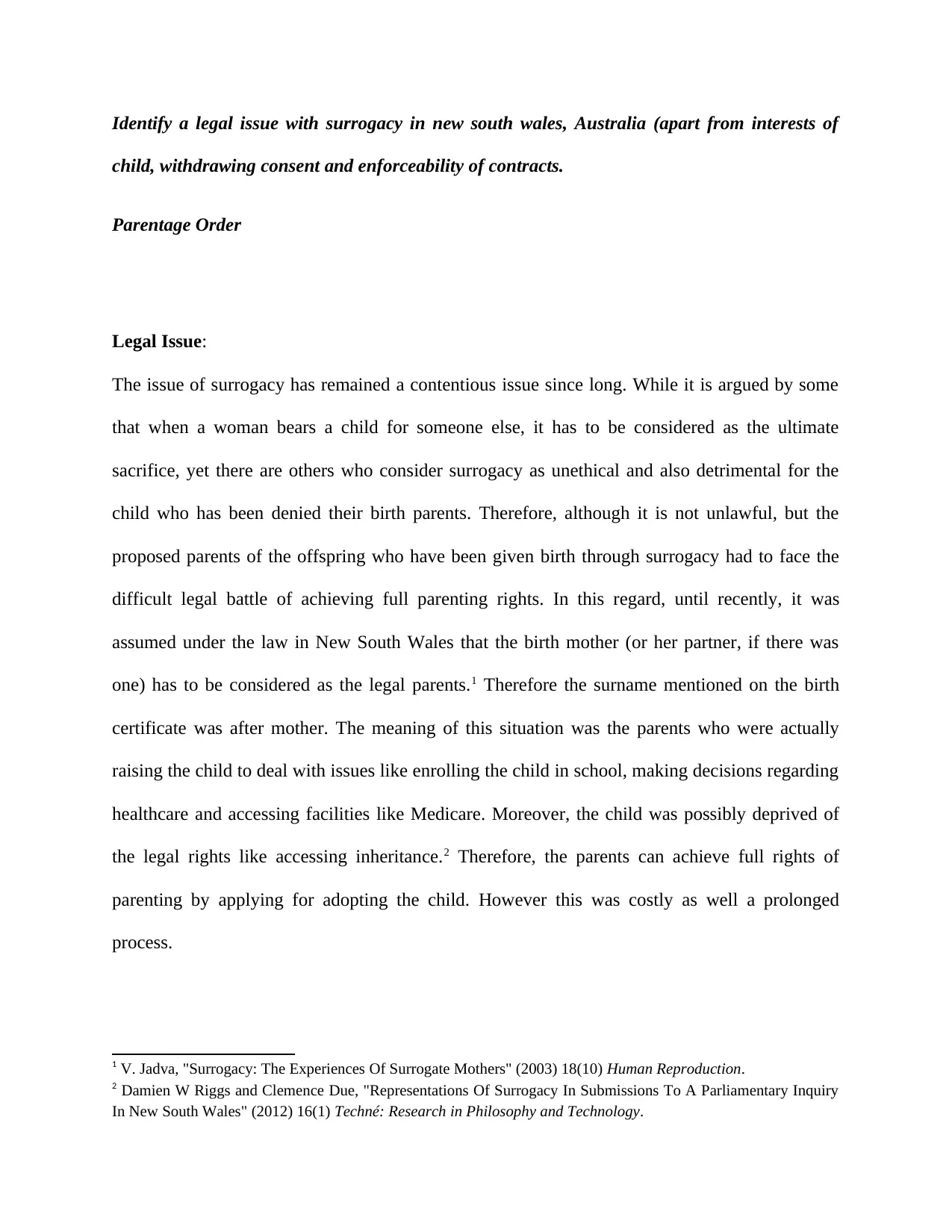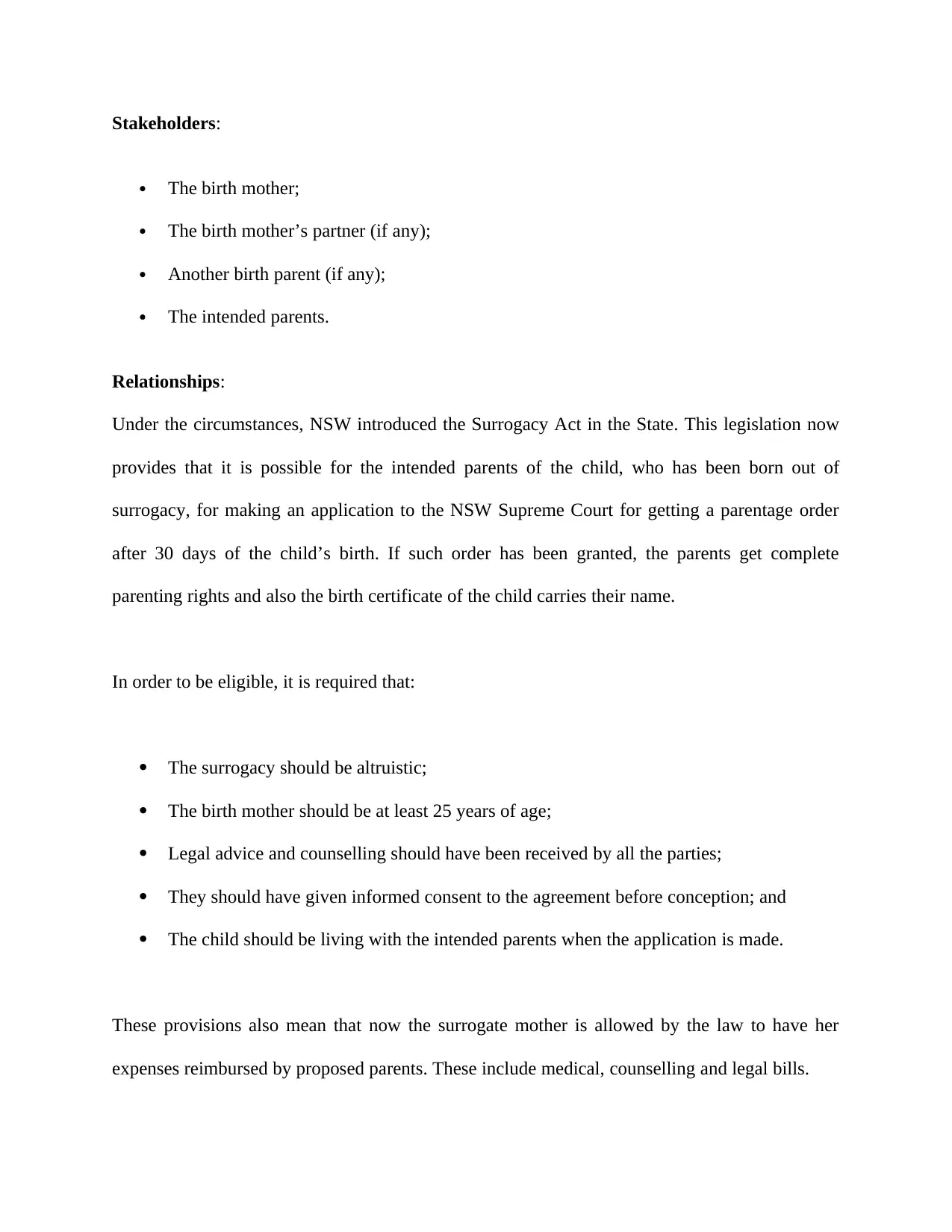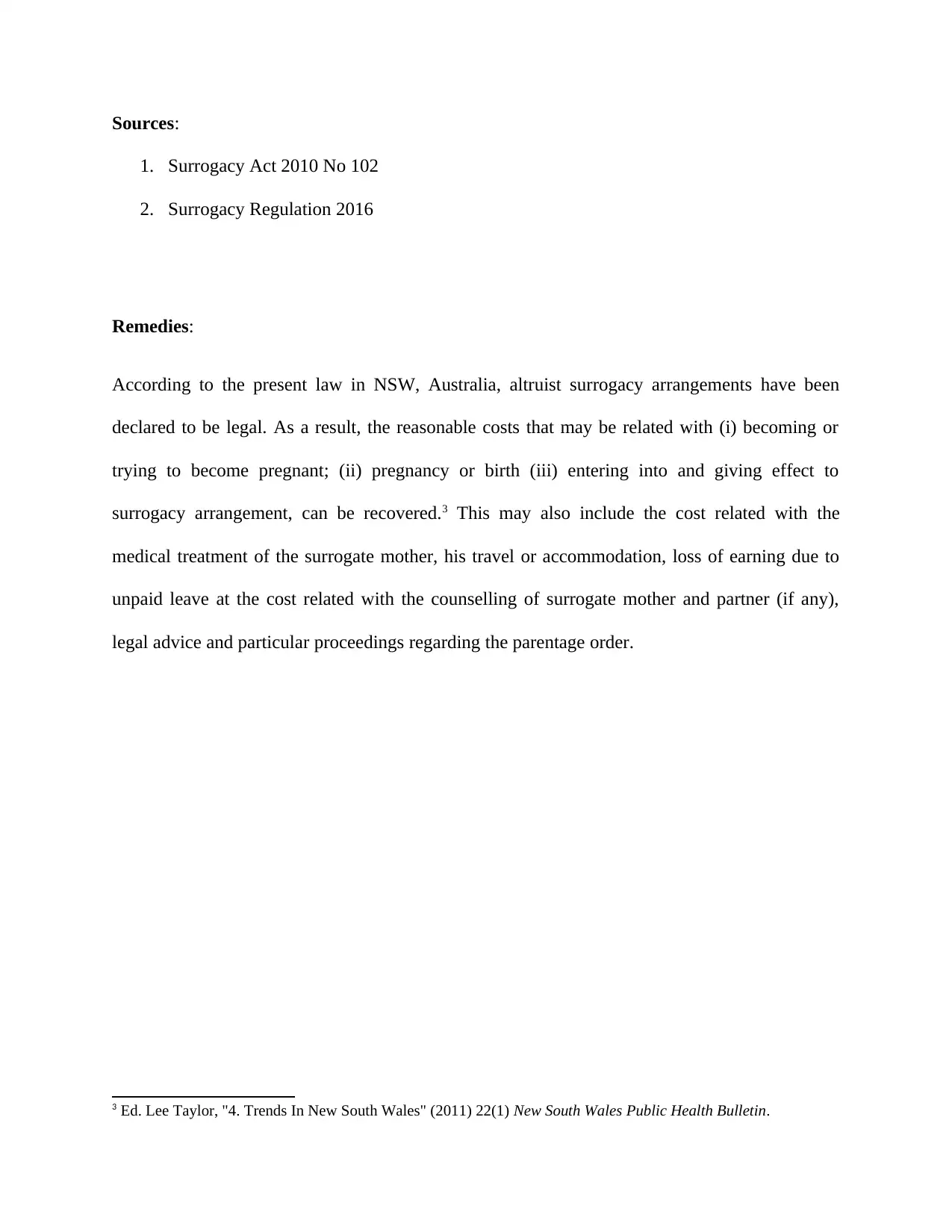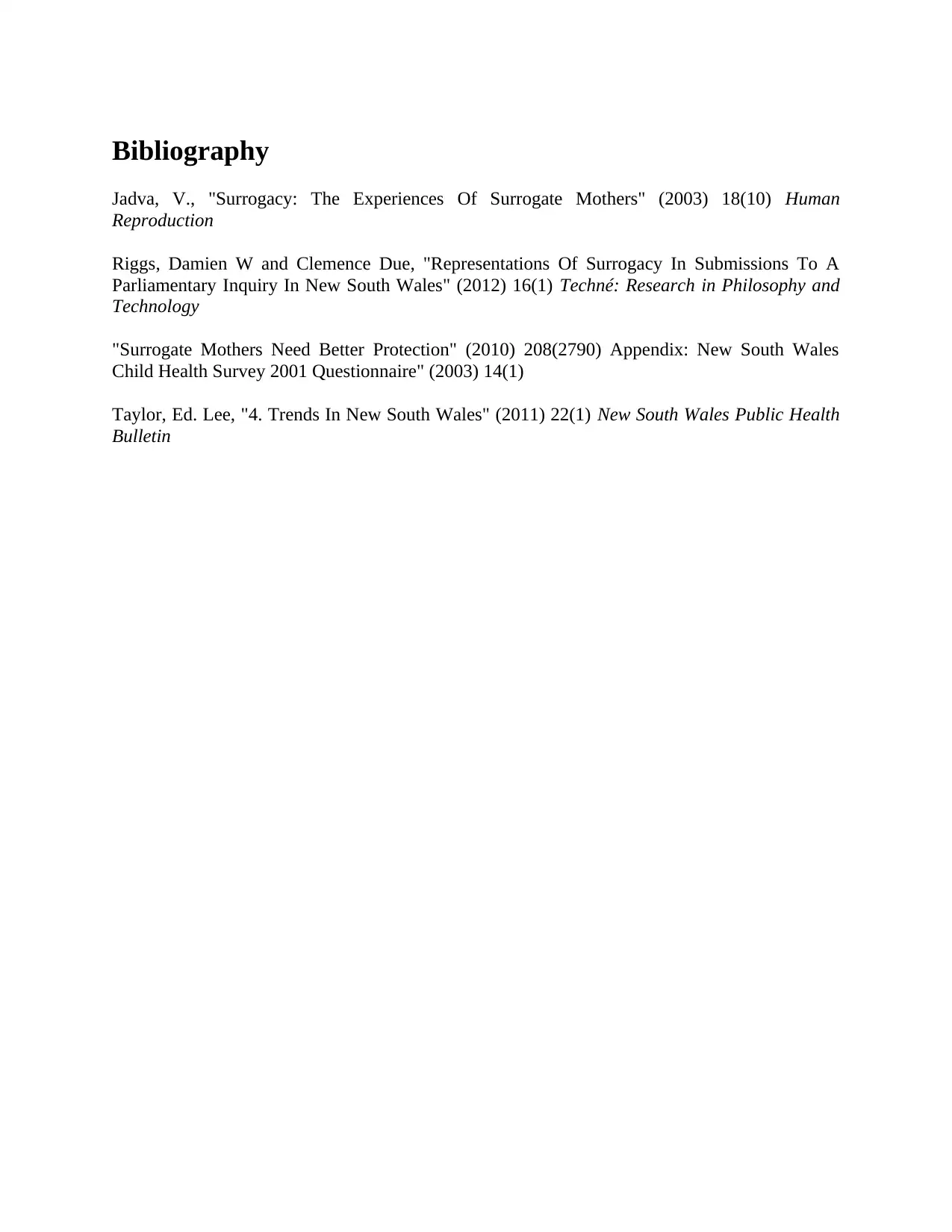Analysis of Surrogacy Legal Issues and Parentage Orders in NSW
VerifiedAdded on 2022/12/20
|4
|831
|37
Report
AI Summary
This report analyzes a specific legal issue surrounding surrogacy in New South Wales (NSW), Australia, excluding interests of the child, withdrawing consent, and enforceability of contracts. The primary focus is on parentage orders, and how the Surrogacy Act 2010 addresses the legal parentage of children born through surrogacy. The report highlights the historical context where birth mothers were initially considered the legal parents, causing challenges for intended parents regarding school enrollment, healthcare decisions, and inheritance rights. It then details the current legal framework, which allows intended parents to apply for parentage orders after the child's birth, granting them full parenting rights and reflecting their names on the birth certificate. Eligibility criteria for parentage orders, including altruistic surrogacy, age requirements, legal and counseling advice, informed consent, and the child's living situation, are also discussed. Furthermore, the report outlines the permissible expenses that intended parents can reimburse to surrogate mothers under the current law, including medical, legal, and counseling costs. The report concludes by providing a bibliography of the relevant sources, including the Surrogacy Act 2010 and related regulations.
1 out of 4











![[object Object]](/_next/static/media/star-bottom.7253800d.svg)